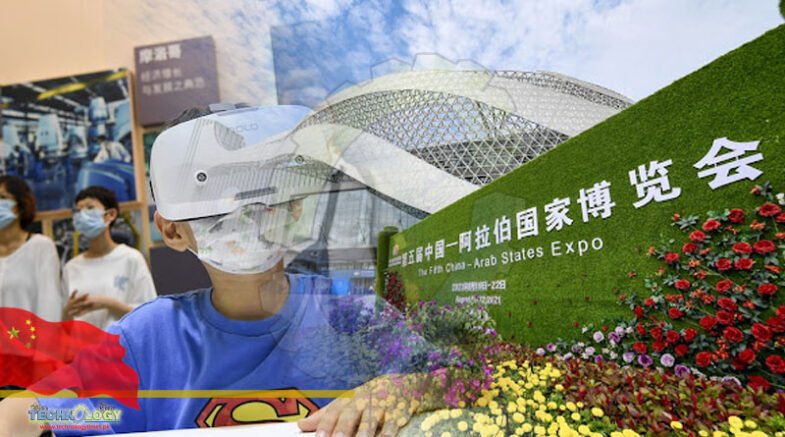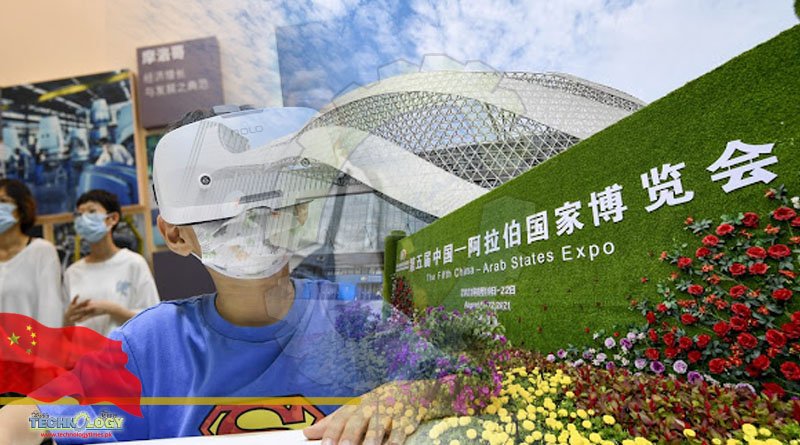The China-Arab States Expo initiate new opportunity, in a pragmatic and innovative way, has enhanced bilateral enterprise cooperation and non-governmental exchanges and injected strong impetus for mutual development, which plays a leading and demonstration role for Arab states and China to jointly build the Belt and Road

The fifth China-Arab States Expo, held as scheduled despite the Covid-19 pandemic, closed Saturday in Yinchuan, capital of northwest China’s Ningxia Hui Autonomous Region.
During the four-day event, delegates from home and abroad have seen 277 projects inked and reached common ground in cooperation in fields such as the digital economy and clean energy.
China, now the Arab states’ largest trading partner, has the confidence to further expand cooperation with the countries in the digital economy, new energy, artificial intelligence and other emerging fields, said Chinese Vice-Commerce Minister Qian Keming via videolink at the opening ceremony.
As one of the expo’s guest countries, Morocco built a national pavilion with an area of over 300 sq m, in which visitors can gain an overall knowledge of its culture, tourism, aerospace and renewable energy. It also held an investment and financing roadshow.
The China-Arab States Expo, in a pragmatic and innovative way, has enhanced bilateral enterprise cooperation and non-governmental exchanges and injected strong impetus for mutual development, which plays a leading and demonstration role for Arab states and China to jointly build the Belt and Road with high quality, said Nasser Bouchiba, president of the Africa-China Cooperation Association for Development in Morocco.
Facing the pandemic and profound global changes, guests from China and the Arab states believed that the two sides have the need more than ever to seek common development and tap cooperation potential.
The expo attracted thousands of enterprises from home and abroad to attend offline and online, despite the downsizing of the expo over Covid-19 prevention and control.
Senior officials from countries like the United Arab Emirates, Saudi Arabia, Egypt, Tunisia and Kazakhstan made speeches via videos, aiming at attracting more investment and business.
Their expectations have been met through the expo, which has served as an important platform for China and Arab states to jointly build the Belt and Road.
Data shows that 277 deals worth about 156.7 billion yuan (about US$24bil or RM102bil) have been signed at the expo, covering fields including electronic information, clean energy, new materials, green food, and capacity cooperation, among which 13 cooperation projects worth nearly four billion yuan (RM2.6bil) is related to the Belt and Road.
Arab countries and China are highly complementary in their economies and enjoy broad prospects for cooperation, which strongly drives the continuous development of bilateral practical cooperation based on mutual benefit, Moroccan Prime Minister Saad Eddine El Othmani said via video. “The signed projects reflect the expo has become an important platform to add new momentum for the Belt and Road Initiative and bring about huge opportunities for the complementary advantages and open development of countries and regions along the Belt and Road,” said Zhao Yongqing, executive vice-chairman of Ningxia.
Highly in line with the current needs of the two sides, the digital economy and clean energy have become the focus of this year’s event, creating new opportunities and space for further cooperation.
In the economic recovery plan the UAE announced in 2020, the UAE government would encourage investment in the digital economy in the long term, with cutting-edge technologies such as 5G and AI as focus, in order to promote digital transformation and economic recovery.
A report on China-Arab trade and economic cooperation in 2021 released at the expo predicts that the Arab states will have a higher demand for information infrastructures for years after the pandemic.
Some Arab countries lack proven techniques in building communication networks, which means huge market opportunities for Chinese enterprises experienced in engineering design and construction and having strong capabilities in serving overseas markets.
Chinese telecommunication giant Huawei has helped some Arab countries build infrastructures such as 5G networks and national artificial intelligence centres, and apply digital technology to customs and ports to promote cross-border trade facilitation.
Tunisian President Kais Saied hailed the “fruitful” cooperation between Tunisia and China in recent years, while praising Chinese companies for contributing to Tunisia’s digital economy.
He also highlighted the ample opportunities and promising prospects for the two countries to diversify and strengthen the bilateral ties, especially in the education, transport and health sectors. As carbon neutrality is a global goal, new energy has become a potential field for the two side’s cooperation. — Xinhua
Source The Star
